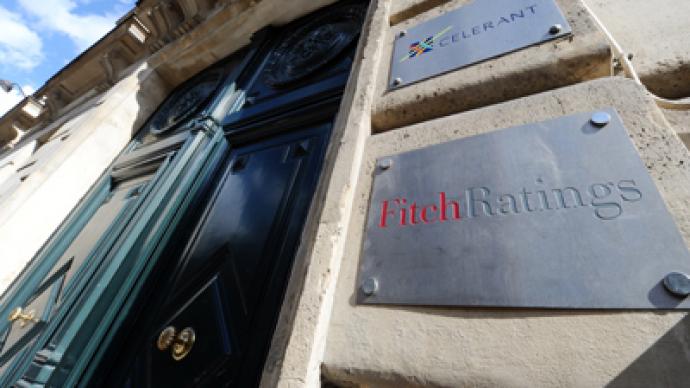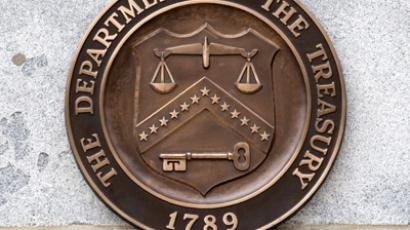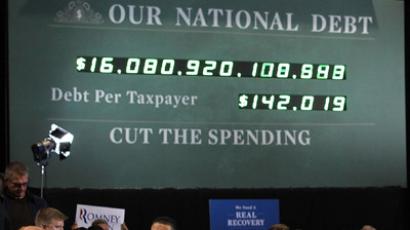US set to lose top rating over debt ceiling. Again

If the US Congress fails to raise the debt ceiling and sends the country into default, it risks losing its top credit rating.
One credit agency has already assured it may downgrade America’s score if there’s any sort of delay in coming up with a budget plan.If the US fails to increase its debt limit by March 1, it may not be able to pay its bills and could fall into default. Fitch Ratings, a top credit agency, said Tuesday that it would downgrade the nation’s AAA credit rating if Congress fails to agree on a plan “in a timely manner”.“In Fitch’s opinion, the debt ceiling is an ineffective and potentially dangerous mechanism for enforcing fiscal discipline,” the company said.A credit rating influences a nation’s borrowing costs, which would be higher if a country proves unable to repay its debts. Lower credit ratings could potentially harm the US economy by increasing its borrowing costs. Even if the US were not sent into default, Fitch would consider downgrading America’s credit rating if it witnesses another heated bipartisan debate that stalls time-sensitive progress.Fitch said on its website that a repeat of the 2011 congressional battle, which almost sent the US into default, would instigate a formal review of the country’s credit rating and increase skepticism in Congress’ ability to come to agreements.“The pressure on the US rating, if anything, is increasing,” said David Riley, managing director of Fitch Ratings’ global sovereigns division. “We thought the 2011 crisis was a one-off event.”Standard & Poor’s downgraded America’s AAA rating after Congress’ debt limit battle in 2011. Moody’s Investor Services did not downgrade the country’s rating, but gave it a negative outlook. The US is still burdened with this negative outlook, with Moody’s having expressed doubtfulness over its ability to come up with a deficit-reduction plan in a timely manner.And even if the US once again averts the financial crisis, Fitch said it would consider downgrading the country’s rating anyway.“In the absence of an agreed and credible medium-term deficit-reduction plan that would be consistent with sustaining the economic recovery and restoring confidence in the long-run sustainability of US public finances, the current negative outlook on the AAA rating is likely to be resolved with a downgrade later this year even if another debt-ceiling crisis is averted,” Fitch said.And a downgraded credit rating is not the only consequence the country faces if it fails to raise the debt ceiling. The US may run out of cash to pay its bills, which would abandon those dependent on government assistance. The US would not be able to afford paying for Social Security, veterans benefits, US troops, aid for low-income families or government salaries.In order to force the Obama administration to cut spending, some Republican leaders have pledged to allow the US to fall into default and shut down the government, thereby hurting the nation’s credit rating.The top three credit rating agencies – Fitch Ratings, Standard & Poor’s, and Moody’s – have all at one point expressed doubt in Congress’ ability to raise the debt ceiling, and Fitch’s announcement makes the country’s economic outlook even more dire than before.














